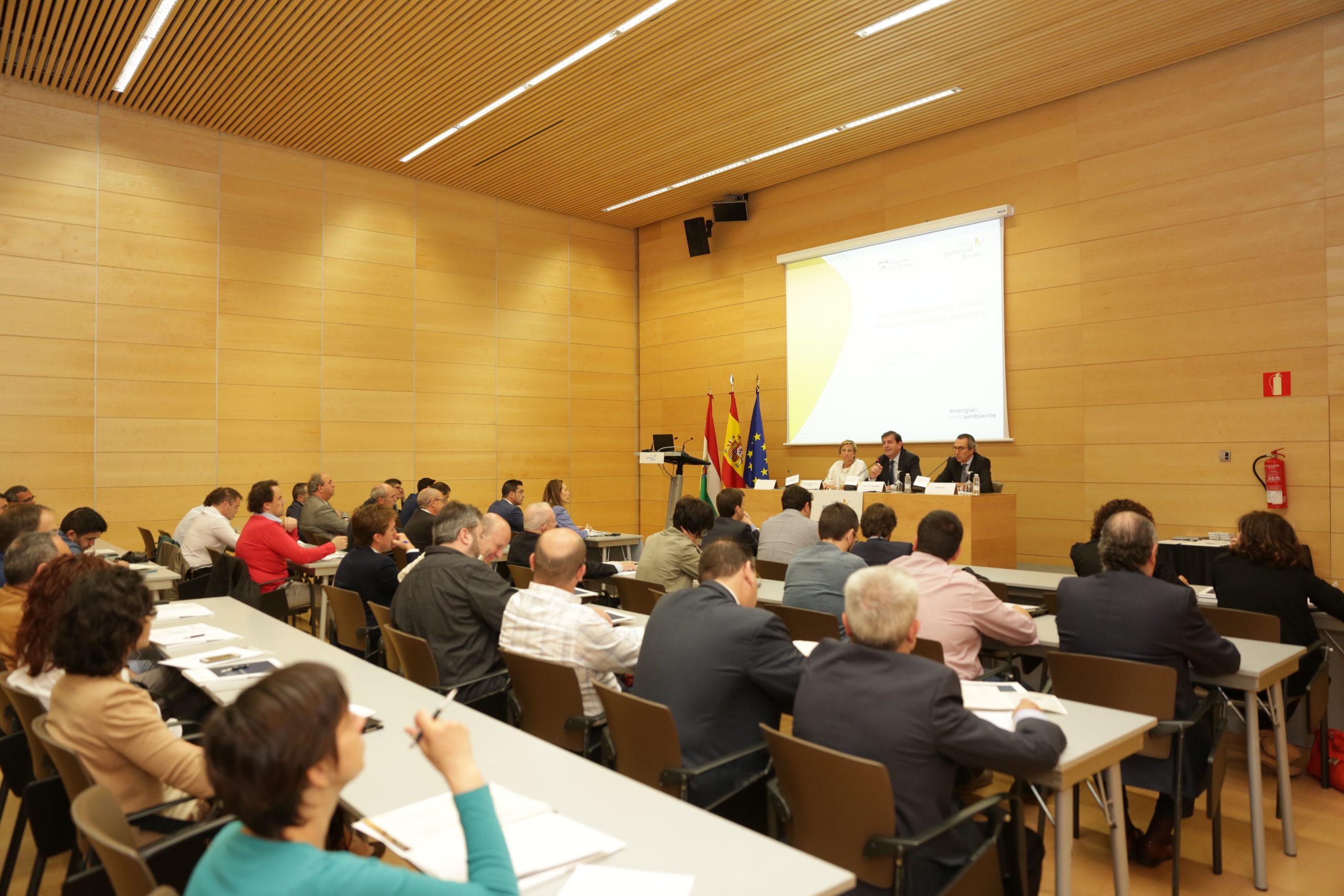The Gas Natural Fenosa Foundation analyses the impact of energy and the environment on competitiveness in the food sector. Logroño
Earlier today in Logroño, the Councillor for Economic Development and Innovation of the Regional Government of La Rioja, Leonor González, the Councillor for Agriculture, Farming and Environmental Affairs of theLeer más

Earlier today in Logroño, the Councillor for Economic Development and Innovation of the Regional Government of La Rioja, Leonor González, the Councillor for Agriculture, Farming and Environmental Affairs of the Regional Government of La Rioja, Iñigo Nagore, and the General Manager of the Gas Natural Fenosa Foundation, Martí Solà, officially opened the seminar entitled Competitiveness, Energy and the Environment in the Food Sector. Energy and environmental management at companies in the food industry sector was analysed at this 14th seminar in La Rioja, which was attended by over 100 people.
The Sustainability and Climate Change Director of PwC, Pablo Bascones, analysed the situation in the food industry as the leading industrial sector in Spain and the challenges posed by managing the environmental impacts stemming from its activity. He highlighted the high demand (energy and water) associated with growth in the sector, as well as waste generation issues. Nonetheless, companies have managed to maintain their emissions at approximately 2% of the national total despite experiencing strong economic growth with a turnover accounting for 2.7% of GDP in 2014.
In turn, the representative from the Institute of Environmental Science and Technology of the Autonomous Universitat de Barcelona (UAB), Carles Martínez, stressed that the resources invested in fast food packaging account for approximately 74%-95% of energy consumption and greenhouse gas emissions, meaning this is the area with the most pressing need for optimisation. According to Carles Martínez, packaging will be increasingly more sustainable and the use of bioplastics will grow at a rate of 15-20% per year. In fact, 63% of consumers consider packaging to be an integral part of the product that reflects brand values and 70% of consumers make their purchasing decisions at the point of sale.
The Managing Director of Agralco S. Coop. de Estella (Navarre), Fermín Esandi, explained that his organisation has been managing the wine products of 400 wineries under the designations of origin of Navarre and La Rioja since 1962. He went on to say that it works with 55,000 Tm of grape marc and 18,000 Tm of wine lees every year and that the manufacturing process stands out for its energy efficiency given that 100% of the necessary thermal energy comes from the biomass generated from the marc and 75% of the electricity consumed is obtained through cogeneration processes that use biogas recovered during the treatment of wastewater.
The Development Director of Eresma COGEN Energía, Valentín González, presented the cogeneration efforts by Destilerías DYC as an example of efficiency in the Spanish industrial sector. Since it was launched in 2008, cogeneration has been operating for almost 60,000 hours to produce over 780 GWh of thermal energy in the form of saturated steam, superheated water and hot water, necessary for the alcohol distillation and rectification processes, as well as for the drying of vinasse and solubles from the fermentation of cereals.
In turn, the Director of the Triptolemos Foundation, Yvonne Colomer, explained the balance that exists between the availability of foodstuffs and the use of resources, as well as the relationship between production technology and energy consumption, offering the kilometre zero concept as an example for fresh and liquid products at a domestic level and for processed products at a continental level.
The Gas Natural Fenosa Foundation
The Gas Natural Fenosa Foundation, founded in 1992, targets its activity at the promotion of information, training and increased social awareness on improving energy efficiency and technological innovation in the field of energy while respecting and protecting the environment, and promotes cultural activities through the Gas Museum aimed at preserving and spreading knowledge about the historical and cultural heritage of the sector. It also has a programme to support exports for small and medium-sized enterprises. Its international activities are carried out in Algeria, Argentina, Brazil, Colombia, Costa Rica, Mexico, Morocco, Italy, Moldova and South Africa.
Logroño, 16 June 2016.
Share